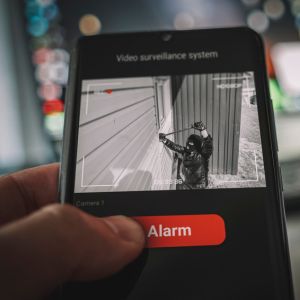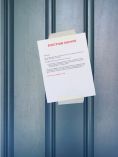Securing Your Vacation Home

You found a great deal on a home in your favorite vacation spot. You might even want to retire there! You might be ready to pull the trigger, but have you thought about security for your new home? It’s important because it’s one of the reasons why vacation homes aren’t covered under a typical homeowners insurance policy. You’ll need a separate policy, and what type of policy you get will depend on a number of things—including how secure the vacation home is while you are away.
Vacation homes, by nature, are vacant more often than they are occupied. This leaves them susceptible to vandalism, theft and even squatters moving in. These things are more likely to happen if someone isn’t there on a regular basis. Vandalism and theft could result in insurance claims, which makes a vacation home a higher risk to insure.
It helps if your vacation home is in a multi-unit building or gated community, but if it isn’t, there are things you can do to help keep it secure when you’re away. You could ask a trusted neighbor or friend in the area to keep an eye on things if you know them well enough, but you might not want to impose. Fortunately, there are better, more reliable ways, such as:
- Hiring a Property Manager: This might be the most expensive option, but well worth it. These companies have staff that can stop by your property regularly and will check the inside and outside so if there’s a problem, they will notice quickly. This can help prevent small problems from becoming larger ones.
- Installing a Security System: This is a must-have and something you should do in addition to anything else to safeguard your vacation home. Today’s alarms involve more than just setting a code. Cameras and apps enable you to self-monitor the property even if you’re hundreds or thousands of miles away. While that’s a great idea, it’s even better to take it a step further and have it connected to a monitoring service as well. They can contact the local police quickly in case there’s a need and you miss the alert for whatever reason.
- Installing Changeable Locks: If you’ve ever stayed in a vacation rental, you might have used a code to open the door instead of using a key. Now you can install locks that require codes instead of keys to get in, and you can change the codes from time to time. That provides an additional layer of security.
- Use an App Controlled Smart Lock: Smart locks allow owners to unlock doors remotely and grant access to guests or staff with temporary codes. They can even monitor who enters and exits the property.
Renting Your Home as a Vacation Rental
Buying a vacation home is not cheap. To help offset the cost, many people are opting to put their vacation homes on a vacation rental site. In some ways, this can keep your place from becoming a target for thieves, unless you use a physical key—then they could make copies and come back later if they are local and know when it’s vacant. (This is why many vacation rentals use changeable locks with codes, as mentioned above.) Another risk is that renters could become squatters. That said, when they are supposed to be out and your cleaning person or next set of renters arrive, you would know there’s a problem fairly quickly.
Other concerns with renting your vacation home would be renters stealing valuables. The simple answer is not to keep valuables and important papers or documents in your vacation home. Limit what you keep there to what you and your renters will need to be comfortable, such as TVs, furniture, appliances, linens and kitchenware. No need for expensive small appliances in the kitchen either—you can buy inexpensive, basic coffee makers, toasters and maybe a blender, but there’s no need for InstaPots, air fryers, etc. Renters won’t be tempted to steal those.
Security concerns should not deter you from buying a vacation home, but it helps to know the risks and how you can avoid them before you make your purchase.
Share This:-
Buying a Vacation Home?
 Vet it Out
Vet it OutThat’s awesome! there are a lot of factors that go into insuring it, like type of property, location and more.
-
Becoming a Landlord?
 Check it Out
Check it OutIf so, you’ll need coverage for your rental property. Shelter offers a policy that protects against a wide range of covered losses.
-
Look Out for Squatters
 Get Them Out
Get Them OutWhether you go on vacation, rent your vacation out when you’re not there, or you’re a landlord, you run the risk of having squatters.
